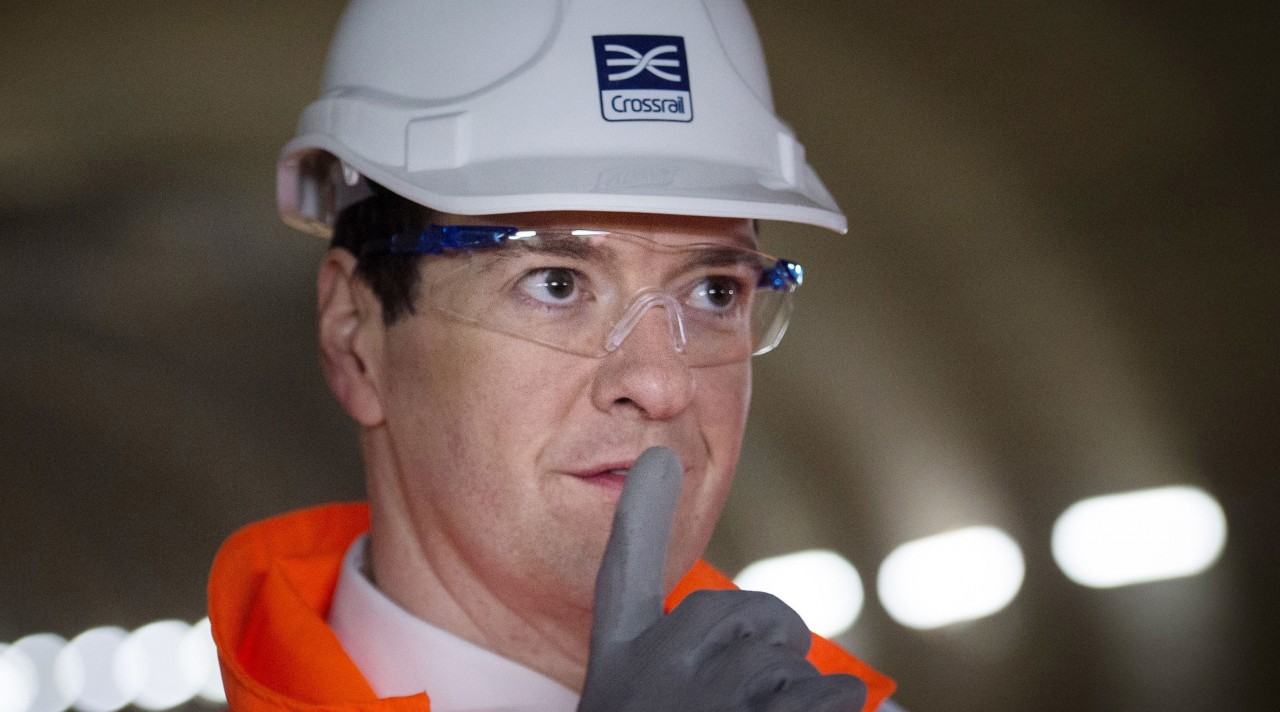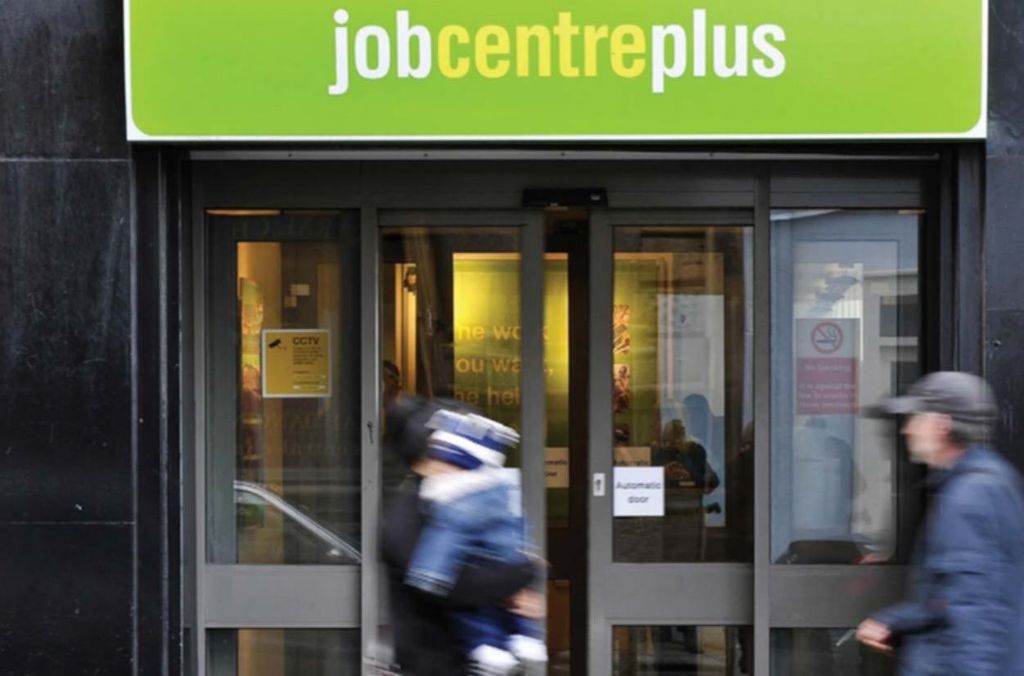
Tax, welfare, minimum wage: some big changes are coming to the UK this week
April is the start of the new financial year in the UK – that means the point where the government puts its decisions on what it does with its money into action.
This week UK citizens will see changes to what they can receive in the form of support from the government (their benefits) or what they pay in taxes.
The confusing thing (or one of the confusing things at least) is that things take a long time in politics. So lots of the changes coming in this week are ones announced well over a year ago. A lot has happened in the past year (that whole Brexit thing for a start) and also the guy who made all these changes in the first place – George Osborne, who was the politician in charge of the government’s money (the Chancellor of the Exchequer) – isn’t even in the same job anymore.

Welfare changes
For sick or disabled people who can't work
If you're out of work because you’re sick or physically unable to work, you’re entitled to support from the government called an Employment Support Allowance (ESA).
But anyone for making a new claim for ESA after 6 April, if they're expected to find work in the future or have been judged by the government to be fit for ‘work-related activity’ (whatever that means), they'll lose about £30 a week, bringing their support it to the same level as other out-of-work benefits.
The government says that this will encourage people to find work when it’s physically possible to do so, but critics have said that sick or disabled people need more support than other job seekers.

For widowed parents with children
Three different benefits to support families where one parent has died are being replaced with a new Bereavement Support Payment. This works out as a payment of £3,500, plus £350 a month for 18 months for people with children dependent on their income. The bereavement support payment will also be offered to families without children for the first time (£2,500 plus £100 a month for other claimants).
Until this week, these regular payments would have continued until the family's youngest child left school.
The Department for Work and Pensions, which organizes benefits like this one, says the new system will make it fairer for everyone – more modern and easier to understand, plus payments will now be tax free.
But some people are saying it will hit bereaved families pretty hard. A terminally ill man pointed out to the Guardian newspaper that his family would receive tens of thousands of pounds less in support if he died on Thursday or after, rather than on Wednesday.
For low-income families with more than two children
Families who claim child tax credits (or similar support under the new Universal Credit scheme which the government is gradually rolling out to replace all tax credits) receive up to £2,780 a year per child. But any third (or more) child born after 6 April won’t be eligible. The government has included some exceptions – if twins or triplets are born after the family already has one child, for example. There’s also a pretty controversial clause that offers mothers an exception if their child is a result of rape – if she can prove it.
The government hopes it will help reduce families reliance on benefits, and encourage them to support their children by working instead of relying on tax credit funds. Osborne argued that it would help to return “fairness” to the system as many working families don’t see their budgets rise “when they have more children" – so non-working families shouldn't either.
But campaigners say it could push families into poverty. Families who are currently able to support their children could find themselves in difficulty if they are forced to claim for more than two children in the future – because a parent has lost their job, for example.
For unemployed young people
For people aged 18-21, the government has introduced what it calls a “youth obligation”. Young people will be given “intensive support” to find a job, and if they’re still out of work after six months they'll have to apply for some kind of training, apprenticeship or work placement. If they don't, they won't be able to receive Universal Credit, the government’s new tax credit policy. It’s all part of the government’s idea to ensure young people are either “earning or learning”.
Out of work young people will also no longer be eligible for a housing benefit, which is paid directly to a landlord to help cover the costs of rent.
The government says this will discourage young people from becoming dependent on benefits for the rest of their lives, but some campaigners, including the homelessness charity Centrepoint, have argued that it could “force young people onto the streets”.

Minimum wage increases
Critics of the government welfare policies say that unless cuts to benefits are accompanied by an increase in better, higher paid jobs, people will still need help.
The government is saying an increase to the – the lowest hourly rate an employer can legally pay their employees – will improve living standards and help reduce reliance on the benefit system. The government is calling this a new National Living Wage, for over 25s it will rise by 30p to £7.50. For 21-23 year olds it will be £7.05, for 18-20 year olds it will be £5.60 and for under 18 year olds the new minimum wage will be £4.05.
Tax changes
There's also a change to the amount of tax people pay, based on what they earn. In the UK, people have something called a personal tax allowance which means they can earn a certain amount of money each year without being taxed on it. This is rising from £11,000 to £11,500. For higher earners, once you get over a certain yearly salary you move into a different ‘tax band’ and so pay more tax. That mark has now risen from £43,000 to £45,000, so they’ll also get a bit of a boost.
The government is selling this move as a tax cut for millions of people. But not everyone is so sure – David Finch a senior economic analyst at an anti-poverty organization called the Resolution Foundation, said: “The overall package amounts to a £1bn net giveaway from the public purse. But the skewed nature of this generosity means that better-off households will receive four-fifths of the gains, while the poorest third of households will be worse off overall.”
Basically, he says the people who will be gaining from these tax cuts are pretty unlikely to be the same people who are losing out from the benefits changes.
So how do these decisions get made?
George Osborne said he was working towards a “higher pay, lower tax, lower welfare” society, and on the surface these changes look to be holding up that promise.
But who the government does and doesn’t support is a really contested economic issue, and comes down to the political views of whoever is in power. The current government is made up of Conservative MPs – as was the pre-Brexit one.
The changes to the welfare system are expected to save the government about £12bn a year by 2020. George Osborne argued that the UK’s economic problems come from the previous government spending more than it got in from taxes (what it calls the deficit). By drastically reducing the amount the government spends – or entering a period of 'austerity' – the old chancellor said he would be reducing this ‘deficit’.
The government believes that the welfare system encourages people not to work, and that work is the “best route out of poverty”. By making these cuts it will reduce people’s dependency on benefits, and should help them in the long run.
But alongside the arguments against individual cuts and the effect they will have on people who do (and don’t) receive them, some critics of the government argue that cutting welfare is a bad idea anyway. They say it is unfair because it disproportionately makes poorer people in society “pay” for weaknesses in the economy that they did not necessarily cause.
Some people also argue that reducing the amount of money people have, and allowing more people to fall into poverty, reduces their ‘purchasing power’ or the amount they can spend, and that harms the economy in the long run.



